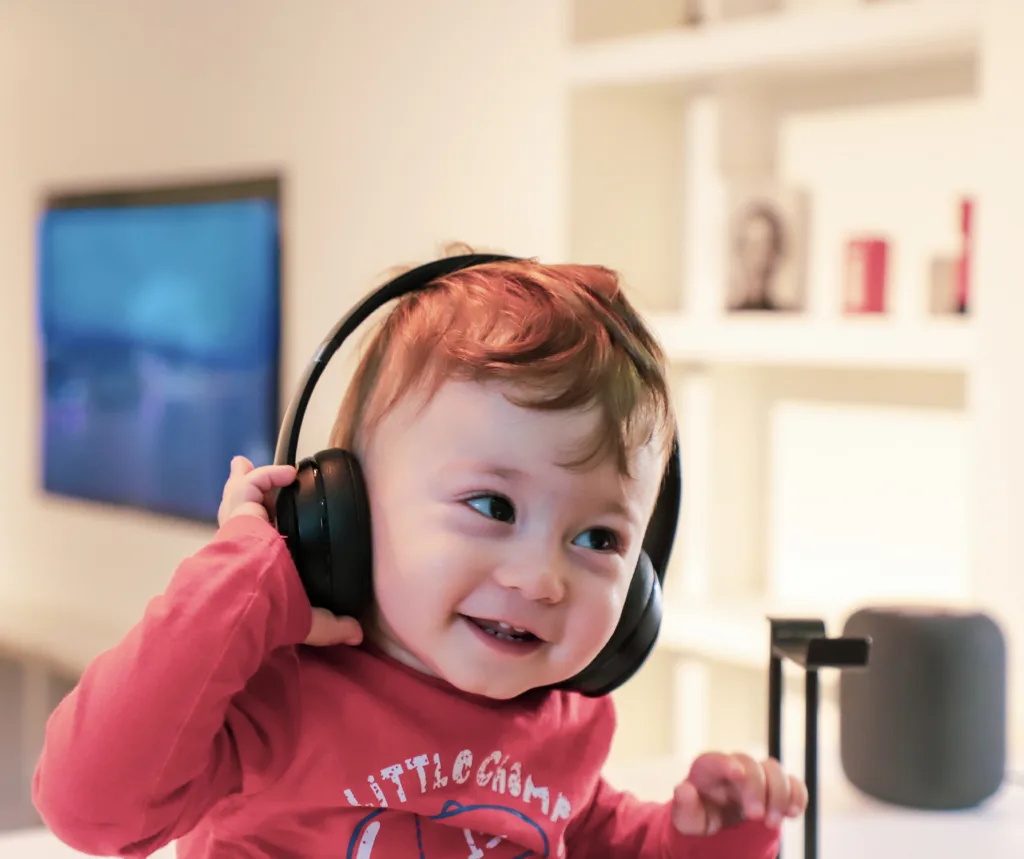Musical inclination is a term used to describe an individual’s natural ability or interest in music. Some people are born with a natural talent for music, while others develop an interest in it over time. In this article, we will explore what it means to be musically inclined and how to identify if you or your child has a natural talent for music.
One of the most common signs of musical inclination is a constant humming or singing of tunes. If you or your child finds themselves humming or singing tunes all the time, it could be a sign of a natural musical talent. This is because the ability to remember and reproduce melodies is a key aspect of musical ability.
Another sign of musical inclination is spending long periods of time on an instrument. If you or your child is constantly playing an instrument, practicing, or experimenting with different sounds, it could be a sign of a natural talent for music. This is because musical ability requires a lot of time and effort to develop, and those who have a natural inclination towards it may find it easier to spend long periods of time practicing and experimenting.
Another sign of musical inclination is an ability to notice when a song or instrument is out of tune. This is because musical ability requires a keen ear for sound, and those who are musically inclined may be more sensitive to canges in pitch and tone.
Those who are musically inclined also tend to have an understanding of rhythm, tunes, and songs. They may be able to pick up on the beat of a song quickly, or they may be able to recognize different melodies and harmonies in a piece of music.
Furthermore, those who are musically inclined often listen to or talk about music. They may have a deep appreciation for different genres of music, or they may be able to discuss the technical aspects of music with ease.
Musical inclination is a natural talent or interest in music that some people are born with or develop over time. Signs of musical inclination include constant humming or singing, spending long periods of time on an instrument, noticing when a song or instrument is out of tune, understanding rhythm and tunes, and having a deep appreciation for music. If you or your child exhibits any of these signs, it may be worth exploring their musical talents further.
How Can You Tell If Someone Is Musically Inclined?
Musical inclination can be observed in a variety of ways. One of the most common signs is a constant humming or singing of tunes. If a person is musically inclined, they tend to have a natural inclination towars music and are often drawn towards musical activities. They may also spend long periods of time playing or practicing an instrument. This level of dedication towards music can be a clear indication of musical aptitude.
Another sign of musical inclination is an ability to notice when a song or instrument is not in tune. People who are musically inclined have a natural ear for music and can easily identify when something is off-key. Furthermore, they have an inherent understanding of rhythm, tunes, and songs, which makes it easier for them to learn and play musical pieces.
Individuals who are musically inclined tend to listen to music more often than others and may even talk about music frequently. They have a deep appreciation for the art form and are often able to identify different genres, artists, and musical styles with ease.
Signs of musical inclination include a constant humming or singing of tunes, spending long periods of time playing an instrument, an ability to notice when a song or instrument is out of tune, an understanding of rhythm, tunes, and songs, and an appreciation for music in general.

Can You Become Musically Inclined?
Absolutely! Anyone can become musically inclined with the riht mindset and approach. While some people may have a natural inclination towards music, it is a skill that can be learned and developed with practice and dedication.
Here are some steps to become more musically inclined:
1. Start by identifying your musical interests. Do you enjoy singing, playing an instrument, or listening to music? What genres or styles do you prefer?
2. Find a teacher or mentor who can guide you on your musical journey. This could be a professional instructor or a more experienced friend or family member.
3. Dedicate time each day to practice your chosen instrument or skill. Consistency is key when it comes to developing any skill.
4. Immerse yourself in music by attending concerts, listening to recordings, and exploring new genres and styles.
5. Don’t be afraid to make mistakes or take risks in your musical pursuits. Learning involves trial and error, and embracing this process can help you grow as a musician.
Remember, becoming musically inclined is a journey, not a destination. Embrace the process and enjoy the ride!
What Does It Mean To Be Musically Oriented?
To be musically oriented refers to an individual’s inclination or interest twards music as an art form or activity. It encompasses a range of attitudes and behaviors related to music, such as active or passive participation, enjoyment or dislike of certain genres, familiarity with musical styles and instruments, and engagement with music-related activities such as concerts, festivals, or music education. Being musically oriented may also involve developing skills in playing or composing music, or pursuing a career in the music industry. Overall, musical orientation reflects an individual’s relationship with music, which can be shaped by cultural, social, and personal factors, and can have a significant impact on their emotional, cognitive, and social development.
Is My Child Musically Gifted?
Musical giftedness in children can manifest in several ways. One of the common signs of musically gifted children is ther ability to move rhythmically in response to music. They may naturally tap their feet, sway, or dance in time to the beat. Additionally, they may show an interest in music from a young age and have an innate ability to recognize and remember melodies and rhythms.
Other signs of musical giftedness in children include their ability to learn and play musical instruments with ease, their proficiency in singing and harmonizing, and their ability to compose and improvise music. However, it is important to note that musical aptitude is not solely determined by genetics; a child’s exposure to music, their level of interest, and their willingness to practice and develop their skills can also play a significant role in their musical development.
If you suspect that your child may be musically gifted, it may be helpful to encourage their interest in music by exposing them to a variety of musical genres, providing them with opportunities to learn and play instruments, and fostering a supportive and nurturing environment for their musical growth.

Conclusion
Being musically inclined is not just about having a natural talent or ability for music. It involves a deep understanding and appreciation for the art form, as well as a willingness to dedicate time and effort towads developing one’s skills. If you have a child who shows signs of being musically gifted, it is important to nurture and encourage their passion for music. This can involve providing access to instruments and music lessons, exposing them to different genres and styles of music, and supporting them as they explore their own creative interests. With the right support and guidance, a child who is musically inclined can go on to achieve great things in the world of music, bringing joy and beauty to those around them.
